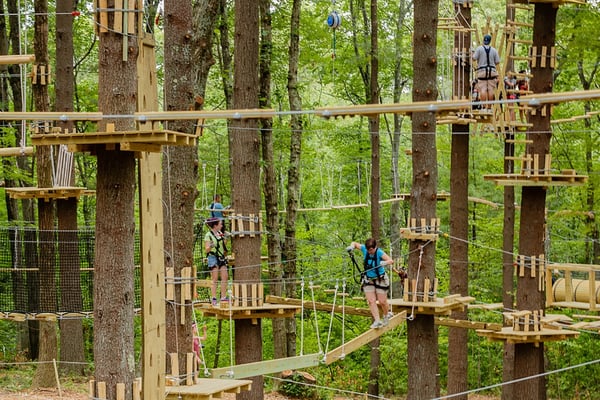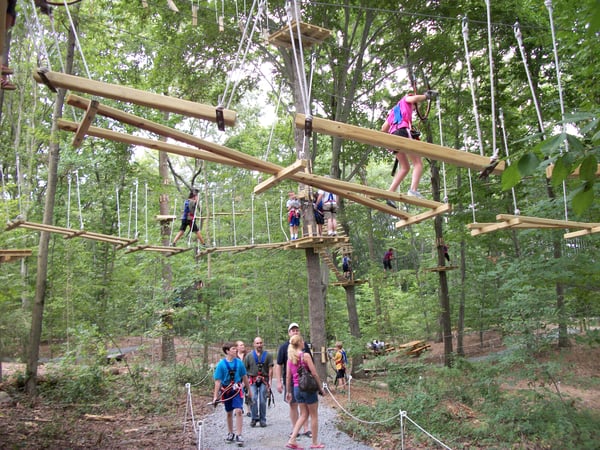Bundling, or packaging, is when companies sell a package or set of goods or services for a lower price than they would charge if the customer bought all of them separately. By focusing on a package deal, the customer is likely to focus on the total experiential value and try features that they may not have otherwise.
Birthday parties can be a great form of bundling. For example, an adventure park who uses The Flybook experimented with this for the first time (selling online) in 2017. The owner believes this was a critical component to their increased success in 2017 over 2016 revenue. The offering is a discounted climbing admission of $45 per person for a minimum of 10 climbers (kids and adults), 2.5 hours of climbing in the park plus reserved picnic tables, goodie bags and a branded t-shirt for the guest of honor. And, the discounted bundle, thanks to the increase in total number of tickets and other tactics executed on pricing, did not make their average ticket price suffer. In 2017 their average ticket price increased by 13 percent over 2016.

Not only were they able to increase their total birthday party sales from 80 tickets to over 1200, but 75 percent of these packages were booked online with no staff involvement, saving them 275 phone calls.
John Hines, owner of The Adventure Park at Sandy Spring Friends School, approaches birthday party packages in a slightly different way from a pricing perspective, but with equal success. He prices these bundles more aggressively, essentially looking at the parties as a loss leader. The driving philosophy is that birthday parties are ripe for new, repeat customers.
“The average birthday party has 10 kids, about half of which have never climbed at our park before,” explains Hines. “This is representing a reach of five NEW families. If we show them a fantastic time and great experience, I’m confident they will come back. And our data says they do.”


